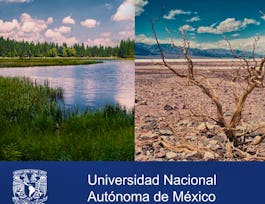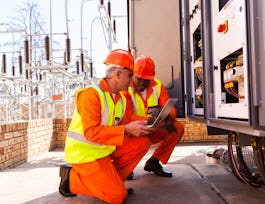The Agence Française de Développement and the Ecole normale supérieure are launching the fourth edition of the MOOC “Ecological and Energy Transitions in Southern Countries".
This edition will be launched simultaneously in 4 languages: · In english : Ecological and Energy Transitions in Southern Countries · In french : Transitions énergétique et écologique dans les pays du Sud https://www.coursera.org/learn/transitions-energetiques-pays-du-sud/ · In spanish : Transiciones energéticas y ecológicas en los países del Sur https://www.coursera.org/learn/transiciones-energeticas-y-ecologicas-en-los-paises-del-sur . In portuguese : Transição energética e ecológica em países do sul https://www.coursera.org/learn/transiao-energtica-e-ecologica-em-paises-do-sul This MOOC is at the junction between the development of Southern countries and sustainable development. It has: 1) a macroeconomic and financial dimension, developed by Gael Giraud and Alain Grandjean; 2) an ecological and climatic dimension, developed by David Claessen and ENS speakers; and 3) a focus on Southern countries, developed by AFD speakers. Here are the learning goals for the entire training program: Goal 1: Be able to understand the relationship between the energy transition, the ecological transition, the role of energy in our economy, our economic development model, and financing issues. Goal 2: Know how to advocate for and lobby on issues and on the need to change reality in order to implement strategies and action plans. Goal 3: Be able to make a link between the Energy transition and financing solutions, and between comprehension and action. No one questions the imperative need to ensure development based on personal well-being and a fair distribution of wealth. The Challenges of a Transition for All Until now the development of Northern countries has been based on an increasing exploitation of energy resources and a greater freedom of trade and exchange at the global scale. We now know that such a model is no longer sustainable, due to global warming and to the overexploitation of resources, which lead to health, social, and environmental disasters. The Role of Developing Countries With that in mind, how can we ensure fair and equitable growth for all? What role do countries from the different regions in the South have to play in this complete upheaval of the current economic, trade, and political models in order to achieve an effective energy and ecological transition? A MOOC to Respond to these Questions This free online training offers complementary perspectives from several specialists of issues related to climate change and the development of Southern countries. They will share their very practical understanding of the current crises and the answers that can be provided. Participants will learn from studies by: • Researchers from the prestigious École Normale Supérieure in Paris • Field experts from the Agence Française de Développement, a funding agency that has been committed to helping developing countries for 75 years, • Carbone 4 founder Alain Grandjean, who will share his experience, in particular on the economic and financial aspects. Here is the program: 1. Our development model is ecologically unsustainable 2. The dominant economic models hinder the energy and ecological transition 3. The energy transition path: decarbonizing GDP 4. The model of an ecological transition to new prosperity 5. Governance of the energy and ecological transition 6. Financing the energy and ecological transition


















